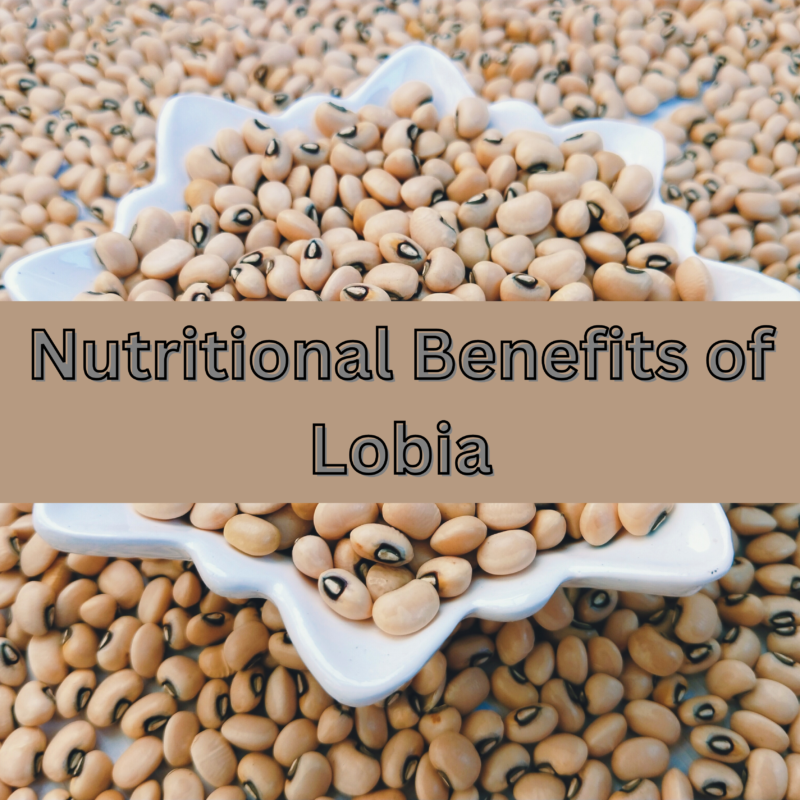Lobia, also known as black-eyed peas or cowpeas, is a legume that has been cherished for centuries across various cultures. This versatile bean is not only a culinary delight but also a nutritional powerhouse. In this blog, we will explore the history of lobia, its nutritional benefits, and how you can incorporate it into your diet.
A Brief History of Lobia
Lobia has a rich history that dates back to ancient times. It is believed to have originated in Africa, where it was cultivated as early as 3000 BCE. From Africa, lobia spread to Asia and Europe through trade routes and migration. In India, lobia has been a staple food for centuries, particularly in the southern and western regions.
The legume was introduced to the Americas during the transatlantic slave trade, becoming a significant part of the diet in the southern United States. Today, lobia is grown and consumed worldwide and is appreciated for its adaptability to various climates and soils.

Nutritional Benefits of Lobia
Lobia is packed with essential nutrients that contribute to overall health and well-being. Here are some of the key nutritional benefits:
- High in Protein: Lobia is an excellent source of plant-based protein, making it a valuable addition to vegetarian and vegan diets. Protein is essential for muscle repair, growth, and overall body function.
- Rich in Fiber: The high fiber content in lobia aids in digestion, helps maintain a healthy gut, and can prevent constipation. Fiber also plays a role in regulating blood sugar levels and lowering cholesterol.
- Low in Fat: Lobia is naturally low in fat, which makes it a heart-healthy food choice. Consuming low-fat foods can help reduce the risk of cardiovascular diseases.
- Packed with Vitamins and Minerals: Lobia contains essential vitamins and minerals such as iron, potassium, magnesium, and folate. Iron is crucial for the production of red blood cells, while potassium helps regulate blood pressure. Folate is important for DNA synthesis and cell division.
- Antioxidant Properties: Lobia is rich in antioxidants, which help protect the body from oxidative stress and reduce inflammation. Antioxidants play a role in preventing chronic diseases such as cancer and heart disease.
Health Benefits of Lobia
- Supports Heart Health: The combination of low fat, high fiber, and antioxidants in lobia makes it beneficial for heart health. Regular consumption can help lower cholesterol levels and reduce the risk of heart disease.
- Aids in Weight Management: Lobia is low in calories but high in protein and fiber, which can help you feel full for longer periods. This can aid in weight management by reducing overall calorie intake.
- Improves Digestive Health: The fiber content in lobia promotes healthy digestion and prevents constipation. It also supports the growth of beneficial gut bacteria, which are essential for a healthy digestive system.
- Regulates Blood Sugar Levels: The fiber in lobia slows down the absorption of sugar in the bloodstream, which helps regulate blood sugar levels. This makes it a good food choice for individuals with diabetes or those at risk of developing diabetes.
- Boosts Immunity: The vitamins and minerals in lobia, particularly iron and folate, play a crucial role in maintaining a healthy immune system. A strong immune system is essential for fighting off infections and diseases.
Lobia is a nutritional powerhouse that offers numerous health benefits. Its rich history and versatility in the kitchen make it a valuable addition to any diet. Whether you enjoy it in a curry, salad, or as a sprouted snack, lobia is sure to add both flavor and nutrition to your meals. So, next time you’re looking for a nutritious and delicious ingredient, don’t forget about the mighty lobia!


